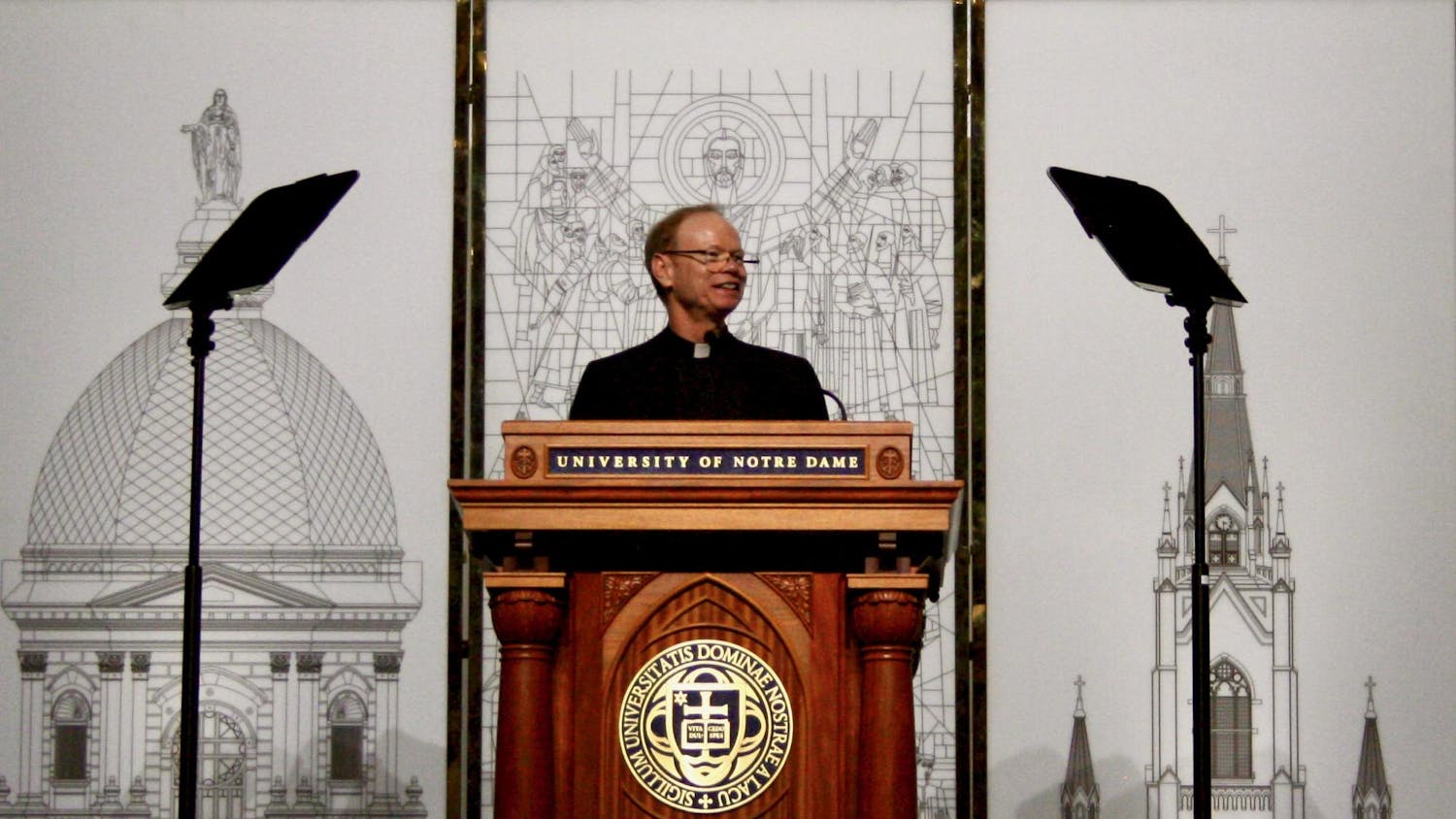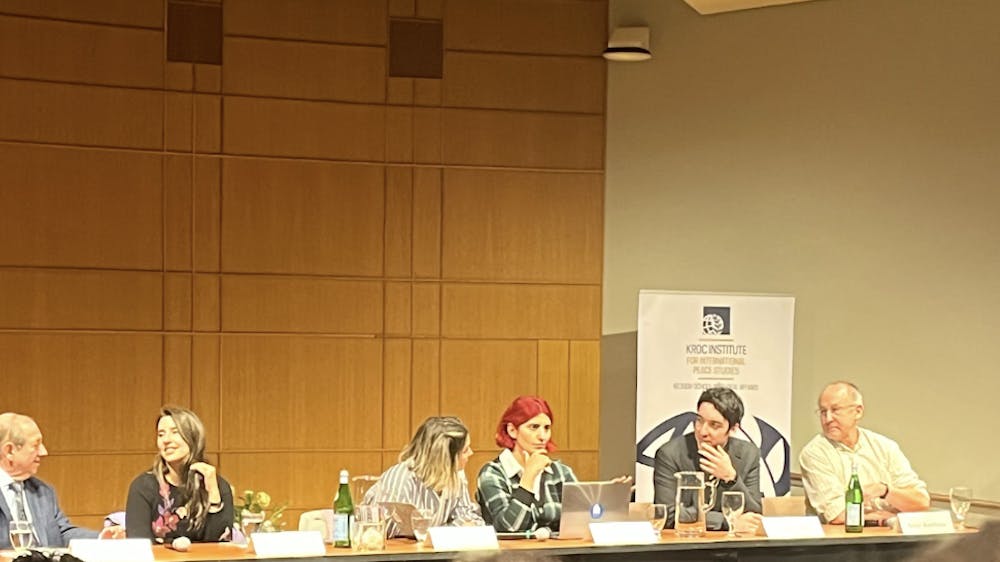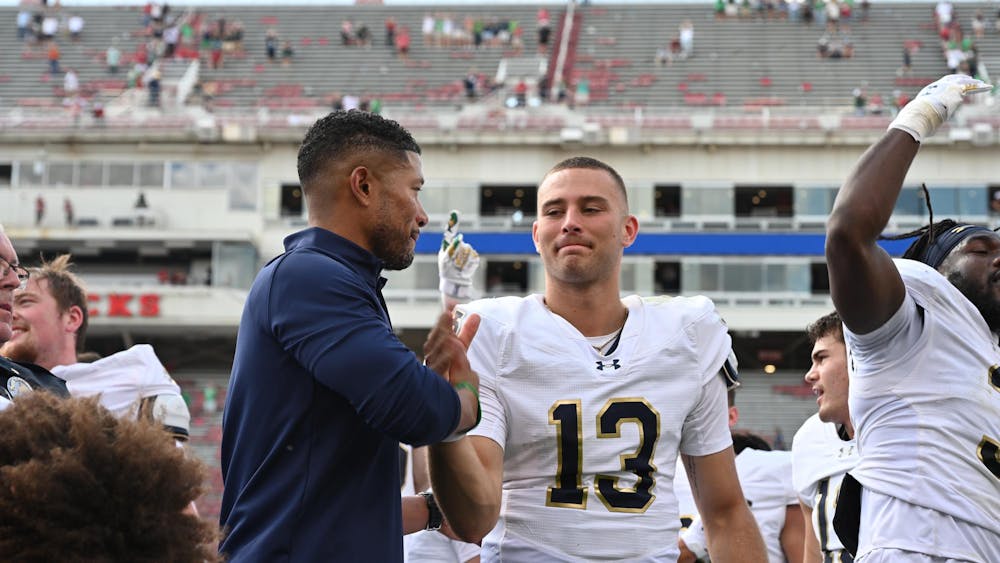The Indiana Court of Appeals ruled Tuesday that Notre Dame Security Police (NDSP) is a public agency subject to public record laws, reversing a decision made in the trial court in Notre Dame’s favor.
The University was sued by ESPN in January 2015, after Notre Dame refused to release incident reports related to student-athletes on two separate occasion
The St. Joseph County Superior Court issued a ruling in Notre Dame’s favor in April 2015. ESPN appealed the decision, and both parties presented their oral arguments to a three-judge panel on Feb. 25.
The case hinges on NDSP’s status as either a private or public agency — under Indiana's Access to Public Records Act (APRA), if NDSP is considered a public agency, it would be required to release certain records. ESPN reporter Maggie Smith argued the duties of NDSP are equal to those of any public police department.
“What we know from Notre Dame’s own crime logs is they arrest, search, interrogate for crimes such as rape, burglary, larceny, aggravated battery, counterfeit, drug possession, DUIs — these are not the actions of your library security guard who is there to make sure that kids don’t take books,” she said, according to an audio recording of the oral arguments available on the Indiana Judicial Branch’s website.
Notre Dame attorney Damon Leichty argued the law was never intended to apply to private colleges and universities. However, since October 2014, two state officials — Public Access Counselor Luke Britt and Attorney General Greg Zoeller — have said they consider NDSP to be subject to APRA.
Zoeller said in a statement that he considers the appeals court ruling to be "a qualified victory for public access and transparency, concepts my office long has supported. The public has the right to transparency and accountability when police power is being exercised," according to the South Bend Tribune.
According to the Court of Appeals ruling, NDSP does qualify as a “public agency” under APRA’s definition of the term because it exercises public functions.
“It would not be appropriate for the Police Department, having availed itself of its statutory right to exercise these public functions, to then be able to circumvent public records requirements to which all other entities exercising these same functions are required to adhere,” the ruling stated.
The case will return to the trial courts to determine which records NDSP will be required to produce.
“We do not, as ESPN requests, find that the trial court must order the Police Department to produce the public documents ESPN sought,” the ruling stated. “We instruct the trial court to determine which of the records the Police Department was required to produce under APRA and then order the Police Department to produce only those records.”
Paul Browne, vice president for public affairs and communications at Notre Dame, said in an email that the University believes the Court of Appeals went “beyond the law.”
“Since the opinion is not certified or final, it does not yet have effect, and the parties cannot act on it,” he said. “We will appeal to the Indiana Supreme Court.”
The appeals court ruling may have a reduced impact if Indiana House Bill 1022, a bill to change the public record requirements for private universities, is passed into law. The bill would require police departments at private colleges and universities to only release information about incidents that result in arrests or incarcerations, exempting a large portion of cases occurring on college campuses.
The bill passed Indiana’s General Assembly last week and is now being considered by Gov. Mike Pence.
Read More
Trending









